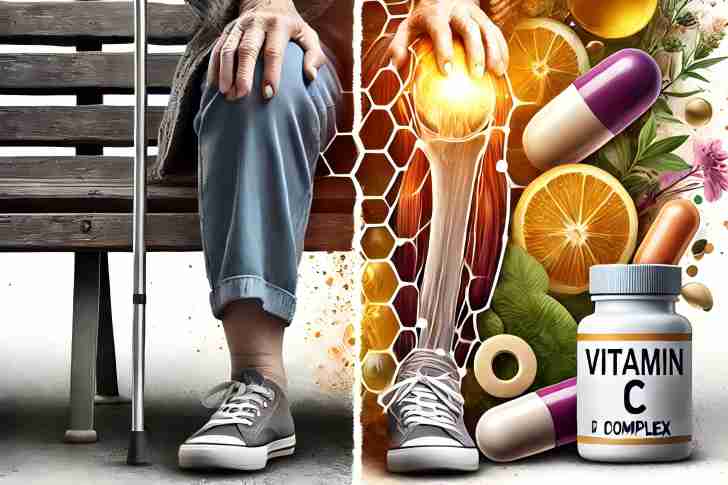Find Relief From Arthritis Pain With These Vitamins
Discover how certain vitamins can help ease your arthritis pain and improve joint health, giving you a more natural approach to managing your symptoms. By following this guide, you can use the right vitamins to reduce arthritis joint pain.

Implementing Vitamin Solutions in Arthritis Treatment
Incorporating vitamins into the treatment regime for arthritis involves a balanced approach. Here are some practical strategies:
- Dietary Adjustments: Incorporating foods rich in vitamins D, C, and B complex can naturally boost levels within the body. Fatty fish like salmon and mackerel are excellent sources of vitamin D, while citrus fruits and leafy greens can provide ample vitamin C and B vitamins.
- Supplementation: When dietary intake is insufficient, supplements can help achieve the necessary levels. It’s advisable to consult with a healthcare provider before starting any supplement to avoid excessive dosage and potential interactions with other medications.
- Lifestyle Modifications: Alongside vitamin supplementation, lifestyle changes such as maintaining a healthy weight, engaging in regular exercise, and getting enough sunlight exposure can enhance vitamin effectiveness and overall joint health.
Essential Vitamins for Managing Arthritis Pain
| Vitamin | Primary Function | Impact on Arthritis Pain | Recommended Daily Dosage | Common Food Sources |
|---|---|---|---|---|
| Vitamin D | Promotes calcium absorption and bone health. | Reduces pain and joint stiffness. | 600-800 IU (15-20 mcg), higher doses may be recommended for deficiency or severe pain. | Fatty fish (salmon, mackerel), fortified milk, sunlight exposure. |
| Vitamin C | Antioxidant, supports immune function. | Lowers inflammation and helps prevent cartilage loss. | 75 mg (women), 90 mg (men), higher for smokers and during recovery. | Citrus fruits, strawberries, bell peppers, broccoli. |
| Vitamin B6 | Supports nervous system health, reduces inflammation. | Helps reduce inflammation-related pain. | 1.3-1.7 mg, depending on age and gender. | Fish, beef liver, potatoes, starchy vegetables. |
| Vitamin B9 (Folate) | Promotes cell and tissue growth. | Assists in reducing homocysteine levels which can exacerbate arthritis pain. | 400 mcg, higher in pregnant women. | Leafy greens, legumes, fortified grains. |
| Vitamin B12 | Necessary for nerve function and DNA production. | Helps maintain nerve function, potentially easing pain perception. | 2.4 mcg, higher in elderly or those with absorption issues. | Meat, fish, dairy products, fortified cereals. |
Source From:
1.https://www.ncbi.nlm.nih.gov/
3.https://www.medicalnewstoday.com/articles/321923#_noHeaderPrefixedContent
Key Vitamins and Their Benefits
- Vitamin D is known for its role in bone health and inflammation reduction.
- Vitamin C supports collagen formation and acts as an antioxidant, potentially slowing arthritis progression.
- B Vitamins like B6, B9, and B12 are essential in managing inflammation and pain.
Frequently Asked Questions
Q: Can vitamins cure arthritis? A: Vitamins cannot cure arthritis but can significantly alleviate pain and slow disease progression.
Q: Are there any side effects of taking vitamins for arthritis? A: High doses of vitamins, especially fat-soluble ones like vitamin D, can have side effects and interact with other medications. Always consult a healthcare provider.
Q: How long does it take for vitamins to affect arthritis pain? A: Improvements can be seen as early as a few weeks, but consistent intake over months provides the most benefits.
The Science Behind Vitamin Efficacy in Arthritis
Research underscores the efficacy of vitamins in managing arthritis. For instance, a clinical trial reported by the National Institutes of Health highlighted the role of vitamin D in decreasing joint pain in individuals with osteoarthritis. Similarly, vitamin C has been studied for its antioxidant properties that combat the oxidative stress associated with arthritis.







Recent Comments